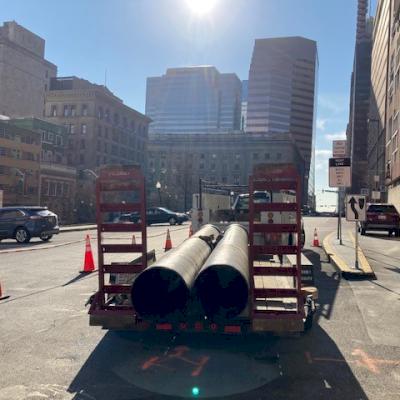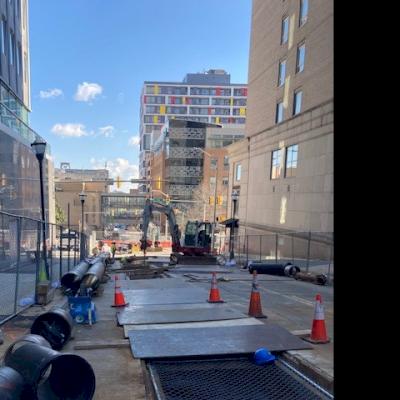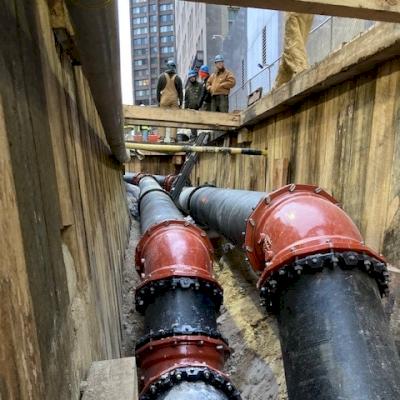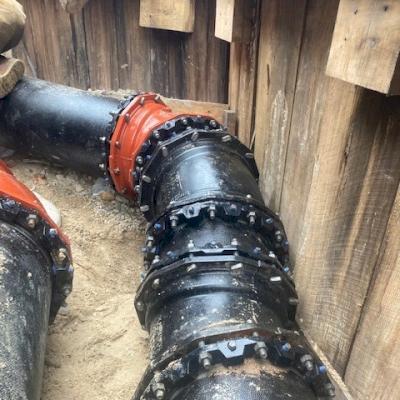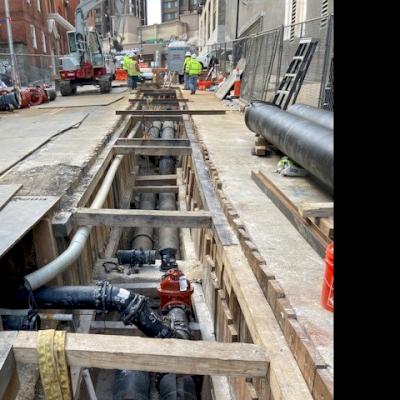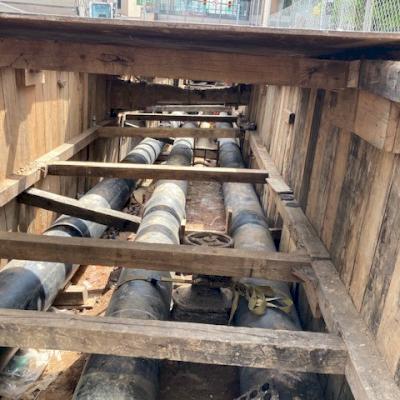Who and What is Vicinity Energy?
Vicinity Energy, headquartered in Boston, Massachusetts, supplies many downtown Baltimore, Maryland business corridor buildings with reliable central water services, offering a cost-effective alternative to maintaining in-house cooling equipment. In this Iron Strong Customer Spotlight, we’ll take a closer look at a recent Ductile iron pipe (DI pipe) installation project that will provide a means for sustainable, affordable energy in the Baltimore area for many years to come.
How and Why Do They Do What They Do?
Vicinity Energy's underground network of piping distributes steam, hot water, and chilled water to customers in the central business district and Harbor East while lowering the city's greenhouse gas emissions by nearly 30,000 tons annually.
“As cities become more condensed, extreme weather events increase and industries require more redundant and reliable energy, having an uninterrupted and sustainable energy supply (electricity, heating, and cooling) has become critically important to human health and economic prosperity.
For facilities, communities, and campuses that require and consume high volumes of electricity, heat, and chilled water to operate efficiently, district energy is helping to free up space in buildings, save building owners in capital expenditures and operations and maintenance (O&M) costs, and improve reliability and sustainability.
Our steam delivery networks can interface with any type of HVAC building system to provide low-cost and reliable thermal energy and cooling. We also provide centrally-produced chilled water, pumping it into buildings and eliminating the need for customers to purchase, operate and maintain chillers and cooling towers." ─ Vicinity Energy, vicinitityenergy.us
Vicinity's innovative system in Baltimore uses ice to augment electrical chilling capacity during the day. By reducing electricity use during peak demand, Vicinity takes pressure off the electrical grid when power usage is at its highest while also helping reduce customer costs.
Vicinity recently added Mercy Hospital to its customer list, requiring them to increase the chilled water line size to meet capacity. Vicinity increased a previously installed 8-inch chilled water line to an 18-inch line from North Charles Street east down to Route 2 in downtown Baltimore to meet the demand for Mercy Hospital.
Vicinity continues to use Ductile iron pipe as their piping material for the chilled water line because of its longevity and proven strength. Vicinity continues to add more customers in downtown Baltimore and plans to replace more chilled water lines with DI pipe as their customer demand increases.
For information on also using DI pipe for steam, see this Iron Strong Blog; Can I Use Ductile Iron Pipe for Steam Applications? by my colleague, Doug Clark.
Who Helped and What Did They Use for the Project?
Vicinity Energy was both Owner and Project Engineers for this effort. The Project Contractor was a combined effort from M&M Mechanical and Priority Construction. The project Distributor was Wolseley Industrial. McWane Ductile is proud to have partnered with Vicinity Energy and providing the Ductile iron pipe needed. Congratulations to all for this innovative approach to energy management and the successful completion of work. The chart below indicates the pipe used:
| DIAMETER | JOINT | CLASS | FOOTAGE |
| 18" | Tyton® | 54 | 1,200 |
| 8" | Tyton® | 54 | 200 |
| 6" | Tyton® | 54 | 120 |
Need Assistance with Your Waterworks Project?
If you have any questions regarding your water or wastewater infrastructure project, be sure to reach out to your local McWane Ductile representative. We have team members who've managed small and large water utility systems, served in engineering consulting firms, and bring decades of experience in solving field issues involving pipeline construction and operation. From design to submittal, to installation, we strive to provide education and assistance to water professionals throughout the water and wastewater industry.


